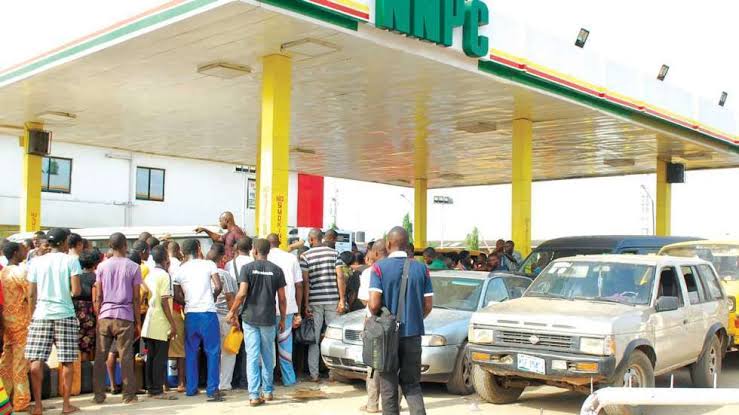
Alagi Yorro Jallow.
Fatoumatta: The Gambia is never short of mundane, avoidable, and hurting stories negatively impacting the poor masses. All over the world, sabotage and conspiracy are not new or unexpected, so to forestall and handle this expectation, people collectively entrust their commonweal to leaders elected to pontificate on their behalf. Therefore, any leadership that cannot address challenges facing its people cannot but be a failed one. The present scorching fuel shortage in a country without constant power supply (indeed abysmal supply despite all efforts) – not to mention the innumerable indices of hardship in the land – was expected as it has become almost traditional during the yuletide period. The warning signals that this will happen with all the threats of transport union strike were all in the public domain; yes, we know the dubious inclinations of the usual suspects. The fuel shortage saga is only a metaphor for the failed or failing multifaceted dimension of the Gambian socio-political cum economic space – you must have seen the viral picture of people buying fuel from the black market and neighboring border towns of Senegal.
The Gambia is a blessed nation full of potentials but shy of translating prospects into actuality; with an abundance of resources scattered all over the land but psycho-economically fixated and constrained by overbearing reliance on the perennial importation of refined gasoline and petroleum products exposed to the vagaries of the international market forces, global political economy, the geopolitics of import-export protectionist manipulations, and fluctuating foreign exchange deficits. Fatoumatta: Until we creatively and intellectually find local solutions to these self-inflicted but avoidable and surmountable challenges, we shall keep recycling these vicious cycles a year in year out. There is no justification for what is happening now in fuel shortage and hike in prices of essential commodities. It should have been avoided as it was avoidable, with proactive preparedness to tackle this unnecessary hardship by pre-empting it. It does not take rocket science to tackle some of this mess. There is no doubt that there are saboteurs who dubiously plot against the success of any government for political or economic reasons, but that is why the government is empowered to position itself within the confines of the rule of law to interrogate such wrong moves. Any failure to do has no other name than mis-governance. To constantly blame saboteurs or conspirators as the cause of a problem you were elected to solve is to admit the failure of proper action, incapacity, or incompetence. It is lame and unconvincingly suffocating to keep comparing one’s incompetences with the incapacities of past leaders, where today’s incapacity is compared with or blamed on yesterday’s woes instead of charting a vision-led prosperous tomorrow.
Fatoumatta: It is the abandonment of responsibility, failure to live up to expectation, a tacit admittance of failure. Leadership is about taking responsibility, rightfully understood as a response(e)-ability, facing challenges, raising, keeping, and sustaining hope in the people. For effective leadership, there must be capacity and competence. Still, beyond that, there is something called optics, public perception, media relations, and effective public relations, ‘without’ which even competent governments can be de-marketed and ‘with’ which a bad government can be laundered for what it is not. This has come to the fore recently with how information management continues to be the fall or rise of leadership. That we are in the mess of avoidable fuel scarcity is the painful reality today. The President’s media team has thought nothing to be the best public relations strategy to address the problem than broadcasting and publishing poorly packaged, unprofessional press releases on the President. Granted that this may have been planned earlier without foreseeing (poor judgment) the lingering fuel crisis, optics would have told the media team that this is not the best time to continue with it.
Fatoumatta: A question any image-maker must answer. Unfortunately, the government communication team only reveals an unprofessionally packaged delivery (despite the concomitant media hullabaloo being raised) where the principal is hardly seen to speak or act softly/humanly but laced; convincingly; with the usual ‘I wish you will know the soft side of the president.’ What could have shown this better than the President’s words or actions, instead of using the usual political associates and vuvuzelas? Wouldn’t the government, through its communication team in solidarity with the sufferings of the masses, have more effectively or better conveyed the human side of the President as a sensitive, compassionate, and listening to person? Would not a video address from the President have done a better PR than a bombastic, eye-catching press release from the President’s aides on his behalf? Not only is Mr. President accountable to the Gambian people, a questionable decision. Which citizens ever feel elated that they rarely hear from their President on various economic and social policies and domestic issues and matters except through online media and fora? That poor judgment continues to destroy professionalism is sad in a government department filled with a retinue of overrated and unjustifiably over-staffed aides speaking for a principal on electronic, print, and social media. When the media team justifies, poorly orchestrates, aids, or even syndicates their principal’s lack of effective communication with the public, then something is terrible PR 101.
Fatoumatta: We are told that we should not allow the present biting hardship (fuel scarcity) to stop us from being positive and optimistic. Maybe the media team should have known that it would have been more optimistic and hope-raising if they were more sensitive to the plight of the masses. By now, somebody should have been apologizing or explaining to the masses. Instead of shifting blames or talking tough on them, the press releases are a further lazy, unconvincing justification, counterproductive mechanism, and ineffective public communication strategy. Not only is the President failing the people or betraying the fiduciary trust many had on him, but it is clear now that people are running out of patience, a repeat of exactly why he was elected, thinking he will correct the anomaly. That the anomaly has not only continued but is perpetuated further by his leadership and governance style must worry those who keep deceiving themselves that Gambians still trust their principal. Yes, Gambians can trust, but they deserve a positively reinforcing reward for this, not a hardship. Something is missing. It is called optics – we have lost it, but we must never forget that one can only reap what has been sown. The judgment day is in the future, but the end is coming so fast and soon.
Fatoumatta: To the professional career saboteurs, the fuel hoarders, the wicked marketers, the capitalist opportunists who want to take advantage of every situation only for their selfish ends, making life more difficult for fellow citizens, please stop making a bad situation even worse. To fellow citizens, keep hope alive. We should not allow the hardships and senseless misgovernance in the country to steal our presidential election campaign – yes, despite all these, God remains the source of Joy. Faith reassures us that no matter the situation, we live because he is our joy, so find a reason to be happy, at least for the gift of life – do not add sadness to anybody this season.
Fatoumatta: May God bless us all Gambians irrespective of any political, religious, and tribal divide and give us a reason to rejoice. As we look forward to Election Day, we shall nostalgically look back to recount the good things the Gambia has done for us. God bless the Gambia.

